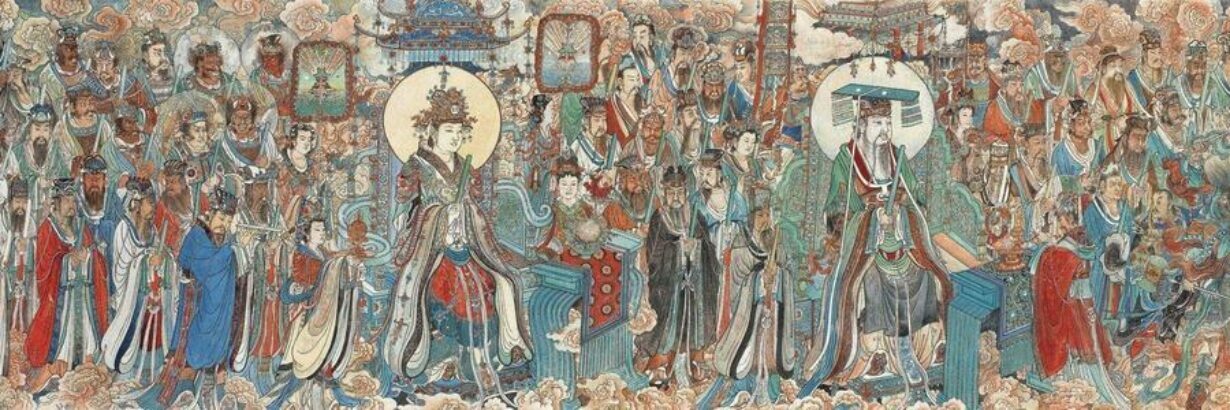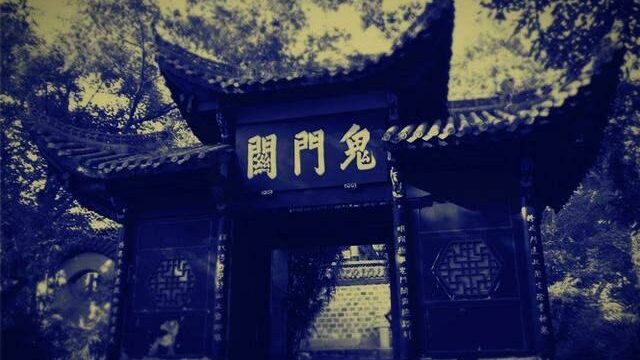1st day of 7th lunar month…
In the realm of Qinghua’s Eternal Joy, within the wondrous palace of the Eastern Extreme’s Marvelous Strictness, stands the Forest of Seven Treasures adorned with myriad fragrant carriages.
Upon the Lotus Throne of Nine Hues, within the innermost circle of the myriad truths, amidst the radiance of countless auspicious lights, resides the Spirit Treasure Venerable of Jade Purity. Originating from the Boundless Beginning, extending compassion through eons of calamity, this is the Door of Nectar in the Great Thousand Realms. The Profound Path’s True Body, the Resplendent Aspect of Purple Gold, responds spontaneously to feelings, boundless vows undertaken. Great Sage, Great Compassion, Great Vow, resounding throughout the ten directions, universally liberating sentient beings. Through billions of eons, rescuing boundless individuals, seeking resonance, manifesting as Supreme Savior of the Great Yin to Relieve Suffering, the Azure Profound Supreme Emperor.
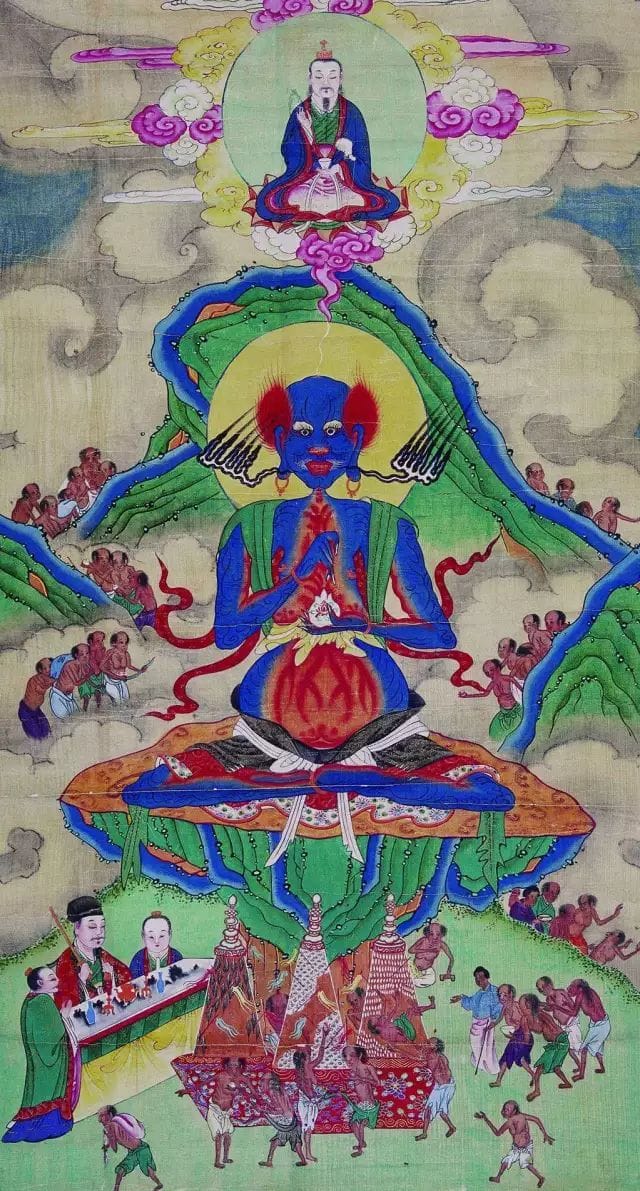
In the 7th lunar month , according to our country’s folklore, it is the “Ghost Month.” Starting from the first day, the King of Hell orders the opening of the gates to the underworld. The tormented spirits are granted a temporary release to wander the mortal realm until the thirtieth day, when the Ghost Gate is closed.
During this month, vengeful spirits and restless ghosts emerge from the underworld, enjoying a short respite in the human world and partaking in offerings of sustenance. As a result, people consider the 7th month inauspicious, refraining from marriage or moving homes.
To ensure peace for both the realms of the living and the spirits, an age-old custom of conducting ceremonies and offerings during the Ghost Month has been practiced in our country. In the first, second, fifteenth, and last days of the month, people conduct rituals and pay respects.

On the first day of the Ghost Month, which is the first day of the 7th month, private households open their “Earth Doors” and perform ceremonies to honor the visiting spirits. On this day, the Ghost Gate opens, and spirits come to the mortal realm, akin to a summer vacation for them. The ceremonies can range from elaborate feasts to simple offerings of fruits and cookies—a gesture of respect.
The second day of the Ghost Month , is when public places open their “Earth Doors.” Businesses and institutions perform ceremonies a day later than private households. The purpose of these rituals is to ensure a safe and uneventful month, free from supernatural disturbances.
The fifteenth day is the main day of the Ghost Festival, when the Ghost Gate is wide open. Yin energy is most potent during this time, so it’s best to avoid being outside, especially near rivers or seas, on this evening.
In addition, it is advisable not to speak of ill omens or offend the spirit realm, as this could attract negative attention from malevolent spirits. On this night, spirits gather in full force, and the Yin energy is at its peak.
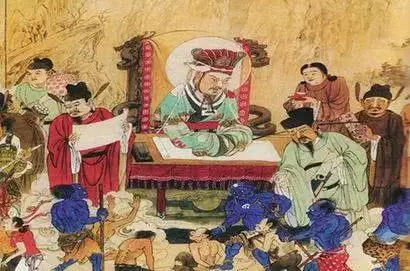
The last day of the Ghost Month, which is the day before the first day of 8th lunar month, is known as “Closing the Earth Door.” On this day, the spirits return to the underworld after their vacation. Ceremonies are performed on this day as well, to ensure continued safety for the days ahead.
The Ghost Festival, also known as the Zhongyuan Festival, coincides with the birthday of one of the Three Officials, the Earth Official. The Earth Official’s role is to pardon sins and dispel grievances. Hence, on this day, the Supreme Savior of Great Compassion grants great blessings, pardoning the souls in hell. The Earth Official is responsible for absolution, while the Ghost Gate remains open, and benevolent teachings are spread.
During this time, people burn paper offerings and recite sutras for their deceased loved ones, seeking to ease their souls’ journey. In addition, in the folk tradition, people prepare food, rice, and paper gold and silver to offer at crossroads to wandering souls and wandering ghosts without caretakers.
Within Taoist temples, during this day, there is a daytime prayer ceremony to welcome blessings, and in the evening, an altar is set up for offerings. Accomplished practitioners perform mystical rituals, recite mantras, and conduct ceremonies to deliver spirits. Through the power of the Tao, bound souls ensnared in the underworld are released, breaking free from boundless suffering and ascending to heavenly realms.
In both Taoist practices and popular beliefs, visiting temples, making offerings to ancestors, and paying respects at ancestral halls on various occasions are numerous. These rituals serve to remind people to uphold “loyalty and filial piety” and not forget their ancestors.
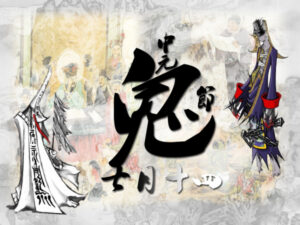
Examples of such traditional festivals include the “Three Yuan and Five Lao Days.” “Three Yuan” refers to the days of “Upper Yuan, Middle Yuan, and Lower Yuan.” Upper Yuan falls on the fifteenth day of the first lunar month, known as the Lantern Festival; Middle Yuan is the fifteenth day of the seventh lunar month, also known as the Ghost Festival; and Lower Yuan is the fifteenth day of the tenth lunar month.
The “Five Lao Days” are as follows: the first day of the first lunar month, known as “Heaven Lao,” or the Spring Festival; the fifth day of the fifth lunar month, known as “Earth Lao,” or the Dragon Boat Festival; the seventh day of the seventh lunar month, known as “Morality Lao,” or the Qixi Festival; the first day of the tenth lunar month, known as “People’s Years Lao,” or the Han Clothes Festival; and the eighth day of the twelfth lunar month, known as “Noble Lao,” or the Laba Festival.
These traditional festivals and customs have deeply impacted various regions and ethnic groups in the country and continue to thrive to this day.
Written and Translated by Daoist Liu Cheng Yong, German Daoist Association.
